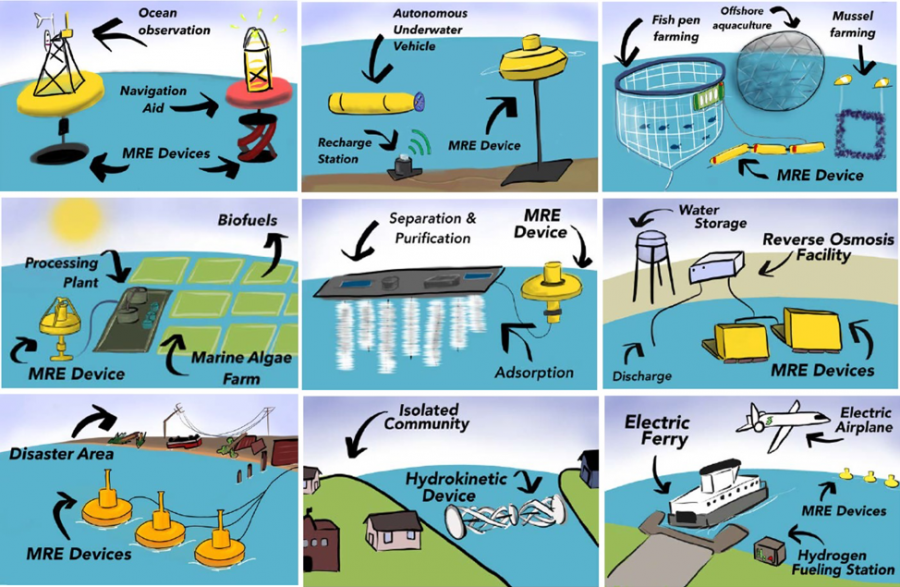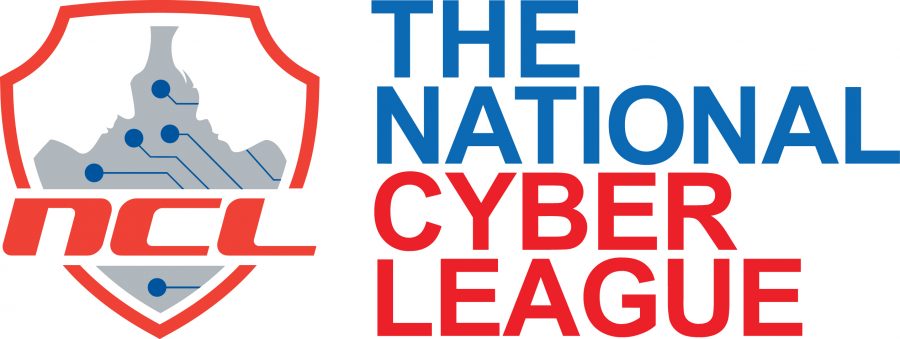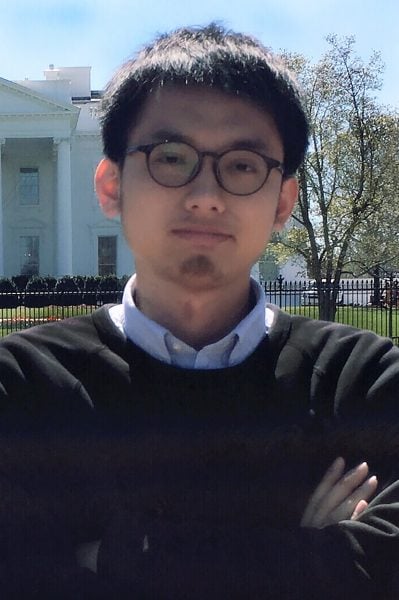
Professor Soner Onder, Computer Science, has been awarded $150K of a $300K project funded by the Office of International Science and Engineering (OISE) and the International Research Experiences for Students (IRES) programs, both units of the National Science Foundation (NSF). The remaining project share was awarded to Florida State University (FSU).
The project provides international research experiences for eight Michigan Tech PhD students (and eight FSU students), providing a stipend, travel expenses, and living expenses while they pursue research in Norway for ten weeks in each of three summers.
The students will be working with Dr. Onder’s collaborators at Norwegian University of Science and Technology (NTNU), Prof. Magnus Jahre and Prof. Magnus Själander. The two institutions are pursuing joint interdisciplinary work involving compilers and architecture . The work is expected to result in several joint research publications.
“I believe this project will help improve our international recognition and stature as a major research institution,” Dr. Onder says.
Abstract
When the technology for computers advance and programs execute faster, more computer applications become possible. This project will enable Florida State University (FSU) and Michigan Technology University (MTU) students to visit the Norwegian University of Science and Technology (NTNU) to conduct research that will allow the performance and energy efficiency of computer applications to be automatically improved. Over the three years of this project, 16 FSU and MTU students (in cohorts of five, five, and six) will visit NTNU, which is in Trondheim, Norway, for a period of 10 weeks during May, June, and July. While in residence, the students will work closely with the faculty, postdoctoral associates, and graduate students in the research groups of Professors Magnus Sjalander and Magnus Jahre who are affiliated with the Computer Architecture Laboratory (CAL) at NTNU. The participating FSU and MTU students will not only increase their research knowledge, but will also become more globally engaged and better prepared to work in a culturally diverse, international environment.
The era of improving processor performance without innovations in computer architecture or compilers is over since increasing the clock rate for computers has not been possible in recent years due to thermal limitations. However, manually modifying programs to efficiently exploit computer architectures is time consuming, error prone, and not portable to other systems. The most effective way to improve application performance is to automatically exploit architectural features without the intervention of the application developers. Our focus will be on automatically achieving high performance and energy efficiency by generating code to exploit existing and proposed architectural features at the machine instruction level. We propose to develop the compilation tools to facilitate the process of automatically generating code to exploit these proposed architectural features and to develop the simulation tools to evaluate the impact on both performance and energy efficiency.
The Norwegian University of Science and Technology (NTNU) is the second largest university in Norway and is consistently ranked among the top one percent of universities world-wide; their current ranking is 101st.
Office of International Science & Engineering (OISE) is the NSF focal point for international science and engineering activities both inside and outside NSF. OISE’s focuses on three activities: (1) promoting the development of a globally competent U.S. workforce, (2) facilitating and supporting international partnerships and networks to leverage NSF and foreign resources, and (3) providing opportunities for U.S. leadership to shape the global science and engineering agenda.
The International Research Experiences for Students (IRES) program supports international research and research-related activities for U.S. science and engineering students. The IRES program contributes to development of a diverse, globally engaged workforce with world-class skills. IRES focuses on active research participation by undergraduate and/or graduate students in high quality international research, education and professional development experiences in NSF-funded research areas.

Michigan Tech is among 17 top colleges and universities nationwide that have been selected to compete in the 2021-22 Marine Energy Collegiate Competition: Powering the Blue Economy The event is hosted by the U.S. Department of Energy’s (DOE) Office of Energy Efficiency and Renewable Energy (EERE).
These student competitors are poised to be the next blue economy innovators as they gain real-world experience and make industry connections to prepare for future careers in marine energy, according to the Marine Energy Collegiate Competition.
The team’s faculty advisors are Andrew Barnard (ME-EM, GLRC), Gordon Parker, and Timothy Havens (CC, ICC).
Administered by the National Renewable Energy Laboratory, on behalf of EERE’s Water Power Technologies Office, the competition challenges interdisciplinary teams of undergraduate and graduate students to explore opportunities for marine energy technologies via real-world concept development experiences, and to propose unique solutions to the burgeoning marine energy industry.
Submissions can run the gamut from concepts that aid in ocean observation and underwater vehicle charging to desalination and more, including—but not limited to—the markets identified in DOE’s Powering the Blue Economy™ report.
Learn more about the competition and sign up for email alerts to keep up with the latest from the Marine Energy Collegiate Competition.

The DOE is hosting the challenge to advance one of the most up-and-coming industries: marine energy. Marine energy has the potential to provide reliable power to the blue economy, but further work is needed to optimize designs and reduce costs, according to the competition website.
The “blue economy” describes the sustainable use of ocean resources for economic growth, improved livelihoods and jobs, and ocean ecosystem health.
Competition Elements
- Develop a market-research-supported business plan, which will include key aspects of their design of a system that could be commercialized to address power needs for a chosen sector of the blue economy
- Pitch their plan to a panel of judges and hypothetical investors
- Have the option to build and test a device to achieve energy production
- Engage with their community through outreach and educational activities.
Competition Deliverables
- A 20- to 30-page market research-supported business plan and technical design of a marketable device powering any marine energy sector of the blue economy
- A 20-minute public pitch that will be presented to a panel of judges during the competition event at Water Power Week 2022 or virtual followed by a 15-minute Q&A session
- 5 minutes of the public pitch will focus on community engagement and outreach activities the team conducted throughout the year
- A poster summarizing the entire technical and business plan
- Optional: An effective prototype that will be tested for power performance at model scale. Results of the test will be summarized in the written report.
Inspiring Blue Economy Ingenuity
“The MECC provides an opportunity for a diversity of experience, education, and perspectives in exploring the possibilities of the blue economy,” said Arielle Cardinal, the MECC operations manager at NREL. “We’re excited to support the 2022 competitors in bringing new ideas and innovations to the forefront of marine energy.”


Michigan Tech ranks number three (3) in the Spring 2021 National Cyber League’s Cyber Power Rankings, rising 12 points from a Fall 2020 ranking of 15. One hundred (100) teams were ranked.
In the NCL cyber-competitions, thousands of students from hundreds of colleges and universities nationwide are challenged to identify hackers from forensic data, pentest and audit vulnerable websites, recover from ransomware attacks, and more.

Three factors are considered in a school’s annual Cyber Power Ranking. In descending magnitude of weight, they are:
- The school’s top performing team during the Team Game
- The school’s top performing student during the Individual Game
- The number of participating students from the school, with additional consideration given to better student performance during the Individual Game
Schools are ranked based on their top team performance, their top student’s individual performance, and the aggregate individual performance of their students. The rankings represent the ability of students from these schools to perform real-world cybersecurity tasks on the Cyber Skyline platform.
See how the NCL competitions work.
View the full list of NCL rankings.
The Cyber Power Rankings were created by Cyber Skyline in partnership with the National Cyber League (NCL). Every year, over 10,000 students from more than 300 colleges and universities across the US participate in the NCL competitions.
Assistant professor Hoda Hatoum (BioMed) gave a talk titled “Novel Predictive Model for Leaflet Thrombosis in Transcatheter Aortic Valve Replacement” as part of the Young Investigator Awards: Basic and Translational Science competition at the virtual American College of Cardiology 70th annual Scientific Session & Expo (ACC.21).
Hatoum also presented two posters on TAVR performance and co-authored a third on pressure recovery at the ACC.21 conference, which was held May 15-17 and featured more than 200 sessions across 11 learning pathways featuring late-breaking science, practice-changing research and cutting-edge education.
Jingfeng Jiang (BioMed/HRI) is the principal investigator on a project that has a received a $346,966 research and development grant from the National Institutes of Health.
The project is titled “Personalized Management of Intracranial Aneurysms Using Computer-aided Analytics.”
Jinshan Tang (AC/HRI) is a co-PI on this potential four-year project, which could total $1,349,106.
by Debra Charlesworth, Graduate School
Applications for Fall 2021 Finishing Fellowships are being accepted and are due no later than 4 p.m. June 30 to the Graduate School. Please email applications to gradschool@mtu.edu.
Instructions on the application and evaluation process are found online. Students are eligible if all of the following criteria are met:
- Must be a Ph.D. student.
- Must expect to finish during the semester supported as a finishing fellow.
- Must have submitted no more than one previous application for a Finishing Fellowship.
- Must be eligible for candidacy (tuition charged at Research Mode rate) at the time of application.
- Must not hold a final oral examination (“defense”) prior to the start of the award semester.
Finishing Fellowships provide support to Ph.D. candidates who are close to completing their degrees. These fellowships are available through the generosity of alumni and friends of the University. They are intended to recognize outstanding Ph.D. candidates who are in need of financial support to finish their degrees and are also contributing to the attainment of goals outlined in The Michigan Tech Plan.
The Graduate School anticipates funding up to 10 fellowships, with support ranging from $2,000 to full support (stipend plus tuition). Students who receive full support through a Finishing Fellowship may not accept any other employment. For example, students cannot be fully supported by a Finishing Fellowship and accept support as a GTA or GRA.

Dr. Junqiao Qiu, Computer Science, has been awarded a two-year, $174,797 NSF pre-CAREER grant, which supports research independence among early-career academicians
The project is titled, “CRII: SHF: GPU-accelerated FSM computations with advanced speculation.”
Dr. Qiu’s research focuses on parallel computing, programming systems, and compiler optimization.
He is a member of the Scalable Architectures and Systems research group of the Institute of Computing and Cybersystems (ICC).
Abstract
Finite State Machine (FSM)-based computations have played critical roles in a variety of important applications, ranging from cyber security and data analytics to software engineering and hardware design. Due to the growing data volumes and limitations on computer processing power, nowadays FSM efficiency is greatly constrained, and a new dimension of efficiency optimization is desired. This project proposes a novel framework to enhance the computing efficiency of FSM-based computations on GPUs. The combination of GPU acceleration and speculative parallelization developed in the proposed framework shows promise for boosting performance of FSM computations and presents the potential to optimize even more general non-FSM computations.
This research investigates how to build up the synergy between highly-parallel GPU architectures and FSM computations. The key idea is exploring multiple dimensions of parallelism for increasing compute utilization as well as reducing data-movement overheads. Additionally, this research designs and integrates advanced speculative parallelization into FSM computations. The advanced speculative parallelization not only enables more effective predictors on different FSMs, it also provides efficient speculative-thread scheduling. All these optimizations will be built into a framework that further explores the trade-offs between different objectives and automatically optimizes application configurations based on the given objectives. Finally, this research seeks to enlarge the applicability of the envisioned results, and it brings the preliminary exploration about a new dimension of computing efficiency for irregular computations as well as applications associated with speculative parallelization.

Dr. Qiu’s lab has openings (RA/TA support) for self-motivated students who are interested in doing system research. For more information, please email Dr. Qiu at junqiaoq@mtu.edu.

Apply now for Michigan Tech’s 2021-22 cohort of Cybersecurity Scholars and jumpstart your cybersecurity career!
The deadline to apply is June 1, 2021.
This generous scholarship opportunity provides up to three years of tuition and annual stipend.
Then, following completion of your degree, you’ll work in a cybersecurity-related position for a federal, state, local, or tribal agency for up to three years– a period equal to the length of your scholarship.
See full guidelines, requirements, and application information on the SFS website: mtu.edu/sfs.
Eligible Degree Programs
- BS in Cybersecurity (CyS)
- BS in Computer Network and System Administration (CNSA)
- BS in Computer Science (CS)
- BS in Software Engineering (SE)
- BS in Computer Engineering (CpE)
- BS in Electrical Engineering (EE)
- BS in Management Information Systems (MIS)
- MS in Cybersecurity
Ready to apply? Visit mtu.edu/sfs
Questions? Email sfs@mtu.edu
Or Contact: Project PI Profesor Yu Cai, or any key faculty member: Professor Jean Mayo, Professor Todd O. Arney, Professor Bo Chen, Professor Chee-Wooi Ten, Professor Kedmon N. Hungwe, and Dr. Laura Kasson Fiss.
The Michigan Tech SFS Program
The SFS program at Michigan Tech involves multiple programs and departments, including the College of Computing and its departments of Applied Computing and Computer Science; the College of Engineering’s Department of Electrical and Computer Engineering; and the College of Business’s Management Information Systems B.S. program.
“The U.S. is facing a significant shortage of well-trained and well-prepared cybersecurity professionals,” said Dr. Yu Cai, professor of applied computing and the principal investigator of the grant. “This new scholarship will continue to develop Michigan Tech’s national and international reputation as a leader and innovator in cybersecurity education, research and outreach activities.”
The five-year, $3.3 million NSF grant provides up to three years of full scholarship support for 20 Michigan Tech undergraduate and graduate students.
About the NSF Scholarship
Protecting worldwide digital infrastructure has become an urgent focus of industry and government. And employment in this sector is expected to grow exponentially in the coming years.
In response, the National Science Foundation CyberCorps: Scholarship for Service (SFS) program was introduced as a nationwide program to recruit and train the next generation of information technology professionals, industrial control system security professionals, and security managers.

Apply now for Michigan Tech’s 2021-22 cohort of Cybersecurity Scholars and jumpstart your cybersecurity career!
The deadline to apply is June 1, 2021.
This generous scholarship opportunity provides up to three years of tuition and annual stipend.
Then, following completion of your degree, you’ll work in a cybersecurity-related position for a federal, state, local, or tribal agency for up to three years– a period equal to the length of your scholarship.
See full guidelines, requirements, and application information on the SFS website: mtu.edu/sfs.
Eligible Degree Programs
- BS in Cybersecurity (CyS)
- BS in Computer Network and System Administration (CNSA)
- BS in Computer Science (CS)
- BS in Software Engineering (SE)
- BS in Computer Engineering (CpE)
- BS in Electrical Engineering (EE)
- BS in Management Information Systems (MIS)
- MS in Cybersecurity
Ready to apply? Visit mtu.edu/sfs
Questions? Email sfs@mtu.edu
Or Contact: Project PI Profesor Yu Cai, or any key faculty member: Professor Jean Mayo, Professor Todd O. Arney, Professor Bo Chen, Professor Chee-Wooi Ten, Professor Kedmon N. Hungwe, and Dr. Laura Kasson Fiss.
The Michigan Tech SFS Program
The SFS program at Michigan Tech involves multiple programs and departments, including the College of Computing and its departments of Applied Computing and Computer Science; the College of Engineering’s Department of Electrical and Computer Engineering; and the College of Business’s Management Information Systems B.S. program.
“The U.S. is facing a significant shortage of well-trained and well-prepared cybersecurity professionals,” said Dr. Yu Cai, professor of applied computing and the principal investigator of the grant. “This new scholarship will continue to develop Michigan Tech’s national and international reputation as a leader and innovator in cybersecurity education, research and outreach activities.”
The five-year, $3.3 million NSF grant provides up to three years of full scholarship support for 20 Michigan Tech undergraduate and graduate students.
About the NSF Scholarship
Protecting worldwide digital infrastructure has become an urgent focus of industry and government. And employment in this sector is expected to grow exponentially in the coming years.
In response, the National Science Foundation CyberCorps: Scholarship for Service (SFS) program was introduced as a nationwide program to recruit and train the next generation of information technology professionals, industrial control system security professionals, and security managers.